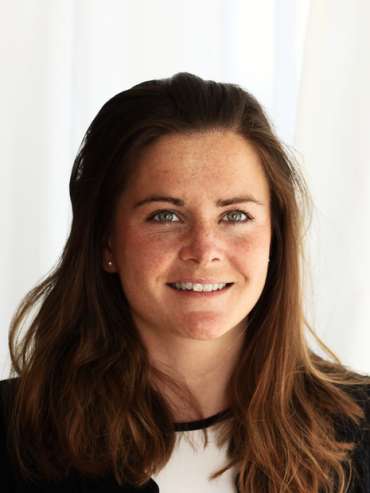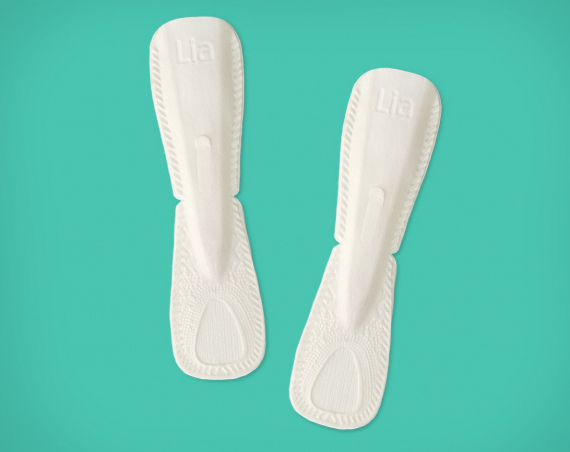While the COVID-19 crisis surely brings uncertainty for many, some businesses are suddenly seeing somewhat unexpected demand. Zaya, a startup connecting expecting parents in New York, where the company recently launched, to a team of doulas and midwives, is one of them.
We spoke to Zaya founder Leoni Runge about maternal care and cultural differences, her experience launching during the COVID-19 pandemic, and Zaya’s plans for the rest of 2020 and beyond.

Hi Leoni, as a first question: What is Zaya and how did you come up with the idea? How long have you been working on this project?
Before starting Zaya, I noticed there was a huge difference in the stories my American vs European friends told of their path to motherhood. In Europe, midwives are an essential part of the maternal journey helping women prepare for and transition into motherhood in every stage of the process. My friends regularly whatsapped with their midwife between their check-ups and enjoyed over 10 in-home visits during postpartum. The same wasn’t true for my American friends. With little access to midwives/doulas and only one scheduled OB-GYN postpartum visit they felt like the process to motherhood was disjointed, impersonal and expensive. When researching further, I found that besides the emotional and financial aspect to maternal care, many mothers and babies in the US suffer from preventable complications. The word “preventable” triggered me.
Midwives in Europe, just like in the US are highly trained and best equipped to tackle the US’ major problems of maternal morbidity, overmedicalization and isolated care. With Zaya I intend to apply learnings from existing global maternal care models to the US and thereby help mothers and babies achieve the healthiest possible outcome.
Why do you think these differences exist in maternal care between the US and other countries exist?
For historic reasons, the midwife’s role in the US is widely misunderstood. Until the late 19th century midwives were valued members of their communities but when medicine became professionalized, physicians argued that birth was a “pathologic” process and they got pushed in the background. This has caused the majority of maternal care to be provided by physicians and in hospitals.
Comparing the maternal care models in the US and European countries, the most apparent difference is that 90% of births in Europe are led by midwives, while 90% of the births in the US are led by physicians. “Pregnancy is not a disease” is a frequent statement heard in Europe. In fact, there is such a run on midwives that many European countries suffer from a midwife shortage. In contrast, in the US over 50% counties have no single OB-GYN. Leveraging the overlooked, yet proven effective workforce of Certified Midwives and Doulas will not only allow for a mother-centered and affordable care, but also help solve the crisis of dwindling OB-GYN numbers.

In maternal care, what role does a midwife or doula usually have? Do they complement or replace care of an OB-GYN? What problem are they solving for expectant parents?
Opposed to what many people believe, midwives and OB-GYNs are not adversarial models of care. While Certified Midwives are experts in healthy, low-risk pregnancies, physicians are specialized in taking care of women with complications. It’s the murky line in between which hinders collaboration in some settings. In Europe, but also more and more in US practices / hospitals, OB-GYNs and Nurse-Midwives work in a collaborative team.
Midwives are medical professionals who have been trained in caring for you before, during and after labor. Just like an OB-GYN they are trained to deliver a baby. Midwives follow a mother-centered philosophy, advocating for non-invasive methods unless medically necessary. Once serious complications arise they transfer the patient to a physician. Doulas are non-medical professionals who accompany you throughout the entire process. Think of them as your birth coach. They are appreciated for their emotional support and often advocate for a mother’s birth preferences during hospital deliveries.
You’ve been live in New York for a few weeks now. How can parents use Zaya? And what are some early learnings? Anything that surprised you about your users or providers and their needs?
We’ve made far more learnings on the needs of parents as we could have wished for! With the recent spread of coronavirus we experienced an adoption rate which exceeded our expectations by far. Parents currently have 24/7 one-to-one access to Zaya’s team of Doulas and Midwives. Via chat or video they can discuss any of their concerns and receive fast, professional and compassionate care. We take pride in providing non-rushed care, as we believe this is vital for providing quality emotional support..
Regarding learnings, we are on the front-line experiencing first-hand the effect this health crisis has on mothers and families. The hospital restrictions have made many parents reconsider their birth plans and pushed them to educate themselves about midwifery and doula support – frequently through our platform. I catch myself admiring my team of doulas and midwives each time I see them at work – the philosophy and expertise these care providers convey continues to impress me. Finally, not as a surprise, but more as a confirmation, we see many dads wanting to take a more active role in the pregnancy, birth and postpartum journey.
In a previous conversation, we talked a little bit about how the COVID-19 crisis has changed your business strategy. Can you tell me a little more about that?
We had planned to kick off our tele-support service with a small 60-people pilot centered around the Brooklyn area. Well prepared and organized. However, when the pandemic unfolded we sped things up: we opened up our channels to the public and decided as a response to COVID-19 to offer our basic chat support for free. With hundreds of users on our chat platform and over 1000 viewers on our first midwife-led COVID-19 Webinar series, we were tackling scalability questions far sooner than expected.
We definitely had to take a cut on process organization but seized the opportunity to help hundred of parents in need for professional and emotional care.
What are next steps for Zaya? Are you currently fundraising?
From an operational perspective, we continue building up our virtual service offering over the next few weeks and build on partnerships with OB-GYN practices and hospitals to support them in better serving their patients. Once the crisis is over we will launch a membership model where patients enjoy not only 24/7 virtual care but regular in-home care visits.
We are currently preparing for our Seed Round, which we expect to close by summer this year.



